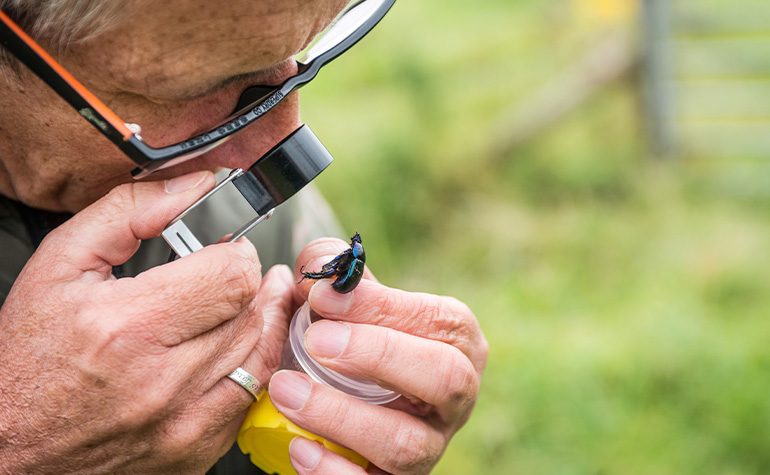A boost for bats in south Wiltshire
Since the 1990’s Wiltshire Bat Group has been helping bat species to thrive across the county through a range of activities. We provided the group with a grant from our Environment Fund to help them with their South Wiltshire Greater Horseshoe Bat Project.
We spoke with Gareth Harris, who is the County Recorder at Wiltshire Bat Group, to find out what they have in store.
What is Wiltshire Bat Group’s purpose?
Gareth: Our main objective is to promote bat conservation in Wiltshire. We do this by carrying out bat surveys and research projects across the county, while also working in partnership with other organisations and training the next generation of bat ecologists.
What is the South Wiltshire Greater Horseshoe Bat Project?
Gareth: We launched this project in the autumn of 2020 to increase greater horseshoe bat populations in south Wiltshire. To achieve this, we have been supporting local communities to improve land management and population monitoring.
How will our funding support the project?
Gareth: Dung beetles are a major food source for the greater horseshoe bat, but they are negatively impacted by intensive agricultural practices. The funding will allow us to carry out dung beetle surveys across the county which will inform our advice to local landowners and farmers. It will also help us to carry out acoustic surveys and deploy bat detectors in the area.

Why is it important to monitor greater horseshoe bats?
Gareth: The greater horseshoe bat is one of the rarer bat species in the UK and it is largely restricted to south west England and South Wales. As this species recovers after declining in the twentieth century, it’s important we monitor them to ensure we are taking the necessary steps to increase their conservation status.
How will the project benefit the environment?
Gareth: Dung beetles are an important part of a bat’s diet, so ensuring there are enough of them is essential to the survival of a number of bat species. The project is also expected to lead to habitat creation, as well as improved soil, hedgerow and woodland management on farms and green spaces across Wiltshire.

